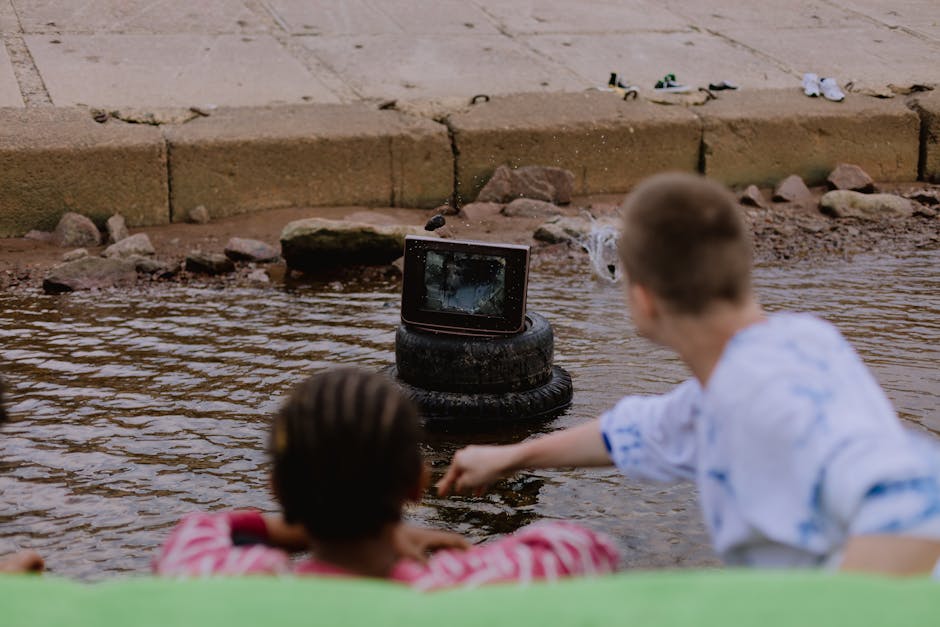Table of Contents
Are you concerned about your teen’s social media habits? You’re not alone. Studies show that teenagers spend an average of nine hours per day on social media platforms. While it can seem like a harmless way for them to connect with friends, research increasingly suggests that excessive social media use can have significant negative impacts on their mental, emotional, and even physical well-being.
This article examines the potential downsides of social media for teens, offering insights and practical advice for parents and educators navigating this complex landscape.
The Negative Impacts of Social Media on Teens
Social media isn’t inherently bad. In fact, it can offer some benefits, such as connecting with like-minded individuals and accessing valuable information. However, the potential downsides are serious and deserve careful consideration.
Mental Health Challenges
One of the most significant concerns surrounding social media use among teenagers is its impact on their mental health. Studies consistently link heavy social media use to increased rates of:
Anxiety: The constant pressure to present a perfect image online, coupled with the fear of missing out (FOMO), can trigger anxiety.
Depression: Comparing themselves to others’ curated online lives can lead to feelings of inadequacy and depression.
Low Self-Esteem: The relentless pursuit of likes and validation can tie a teen’s self-worth to their online persona.
Body Image Issues: Exposure to unrealistic beauty standards often promoted on social media can contribute to negative body image.
A recent study published in the Journal of Abnormal Psychology found a strong correlation between social media use and depressive symptoms in adolescents. You can read more about it here: American Psychological Association
Cyberbullying and Online Harassment
The anonymity afforded by the internet can embolden individuals to engage in cyberbullying, which can have devastating consequences for victims. This is particularly true for teens.
Cyberbullying can take many forms, including online harassment, spreading rumors, and posting embarrassing photos or videos.
The 24/7 nature of social media means that cyberbullying can follow teens home, making it difficult to escape.
Victims of cyberbullying often experience feelings of shame, isolation, and even suicidal thoughts.
Sleep Disruption
The blue light emitted from social media devices can interfere with the production of melatonin, a hormone that regulates sleep. This is compounded by the fact that many teens use social media late into the night.
Sleep deprivation can lead to a range of problems, including difficulty concentrating, mood swings, and weakened immune system.
Chronic sleep deprivation can also increase the risk of developing mental health problems and substance abuse issues.
Addiction and Time Wasting
Social media platforms are designed to be addictive. They use algorithms to keep users engaged and coming back for more. This can lead to teens spending excessive amounts of time on social media, neglecting other important activities, like schoolwork, hobbies, and social interactions.
The constant stream of notifications and updates can be incredibly distracting, making it difficult to focus on other tasks.
Spending too much time on social media can also lead to feelings of isolation and loneliness, as teens may prioritize online interactions over face-to-face relationships.
Strategies for Mitigating the Risks
While eliminating social media entirely may not be realistic for most teens, there are steps you can take to minimize the risks.
Open Communication
Talk to your teen about the potential dangers of social media. Encourage them to come to you if they experience cyberbullying or are feeling overwhelmed by their online experiences.
Setting Limits
Establish clear guidelines for social media use, including time limits and restrictions on certain types of content. Consider using parental control apps to help enforce these rules. The Mayo Clinic offers some useful advice here: Mayo Clinic
Promoting Healthy Habits
Encourage your teen to engage in other activities that promote their well-being, such as exercise, hobbies, and spending time with friends and family.
Leading by Example
Model healthy social media habits yourself. Put away your phone during meals and family time, and be mindful of the content you are consuming online.
Expert Insights
Dr. Jenny Radesky, a developmental behavioral pediatrician, warns that excessive social media use can “hijack” children’s attention and interfere with their ability to develop crucial social and emotional skills. She emphasizes the importance of creating a balance between online and offline activities.
Common Mistakes
One common mistake parents make is failing to monitor their teen’s social media activity. It’s important to be aware of the platforms they are using and the content they are consuming. Another mistake is dismissing their concerns as “just teenage drama.” Take their feelings seriously and offer support.
Key Takeaways
Social media can have negative impacts on teens’ mental health, leading to anxiety, depression, and low self-esteem.
Cyberbullying is a serious problem that can have devastating consequences.
Excessive social media use can disrupt sleep and lead to addiction.
Open communication, setting limits, and promoting healthy habits are essential for mitigating the risks.
FAQ: Social Media and Teens
Why is social media bad for teens?Social media can be detrimental to teens because it can negatively impact their mental health, expose them to cyberbullying, disrupt their sleep patterns, and lead to addictive behaviors. The curated nature of online content can also contribute to feelings of inadequacy and low self-esteem.
What are some signs that my teen is spending too much time on social media?
Signs include neglecting schoolwork, withdrawing from family and friends, experiencing mood swings, and difficulty sleeping.
How can I help my teen manage their social media use?
Open communication, setting limits, promoting healthy habits, and leading by example are all effective strategies.
Is it okay to ban my teen from social media entirely?
While it’s ultimately a personal decision, completely banning social media may not be realistic or effective. It’s often better to teach teens how to use social media responsibly and safely.
In short, finding a balance between social media and healthy real-world activities is key for teenage well-being.
Conclusion
The impact of social media on teens is a complex and evolving issue. While it offers some benefits, the potential downsides are significant and cannot be ignored. By understanding the risks and implementing proactive strategies, parents and educators can help teens navigate the social media landscape in a safe and healthy way. It is vital to engage with teens and have an open dialogue about their experiences online.
Recommendations
Encourage your teen to participate in offline activities and hobbies.
Model healthy social media habits yourself.
Seek professional help if you are concerned about your teen’s mental health.
Take action today! Start a conversation with your teen about their social media use and develop a plan to promote healthy habits. Leave a comment below sharing your experiences and insights.

















